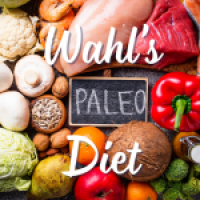Health Implications of Highly Refined Soy Products

Article Summary
Highly refined soy products, despite their marketing as “gluten-free,” “vegan,” or “healthy,” are not as beneficial as they may seem. These products, like soybean oil and soy protein isolates, go through extensive processing that strips them of essential nutrients. The high temperatures and chemical solvents used during production significantly reduce the vitamins, minerals, and phytonutrients found in whole soybeans. While whole soy foods like edamame and tofu offer fiber, healthy fats, and antioxidants, refined soy products often lack these benefits, making them a nutritionally inferior choice.
Refined soy can also cause health problems, including increased allergenicity and hormonal imbalances. The concentrated proteins in processed soy are more likely to trigger allergic reactions, particularly in individuals sensitive to soy. Additionally, the high levels of phytoestrogens in these products may disrupt hormones, affecting thyroid function and reproductive health. This is especially concerning for vulnerable groups like pregnant women and children. In contrast, consuming whole soy foods, which contain lower levels of these compounds, may provide protective health benefits without the risks associated with refined soy.
Another significant issue with refined soy products is their impact on gut health. Processing removes beneficial fiber and introduces additives that can harm the gut microbiome, leading to digestive issues and inflammation. Functional medicine emphasizes the importance of gut health and the microbiome in overall well-being. By avoiding refined soy products and choosing whole, minimally processed soy foods, individuals can support their digestion, immunity, and overall health. This approach aligns with the functional medicine philosophy of focusing on natural, nutrient-dense foods to maintain balance and prevent disease.
Want to know more details?
Check out the full article below.
Refined soy products are not a health food – even if they are labeled as “gluten free,” “vegan,” “keto,” or “paleo.” Don’t be deceived by clever marketing tactics to get you to consume yet another highly processed food.
Processed Foods for a Fast Lifestyle
The consumption of highly refined soy products has increased significantly due to their widespread use in various food items and dietary supplements. While soy is often promoted for its health benefits, the process of refining soy can strip it of its natural nutrients and introduce potential health risks. From a functional medicine perspective, which focuses on holistic and integrative approaches to health, it is crucial to examine the implications of consuming highly refined soy products. Here we will explore the health issues associated with these products, including nutrient depletion, potential allergenicity, endocrine disruption, and impacts on gut health, while advocating for a functional approach to mitigate these risks.
Soy products have been a dietary staple in many cultures for centuries, lauded for their high protein content and various health benefits. However, the industrial processing of soy into highly refined products such as soybean oil, soy protein isolates, and textured vegetable protein raises significant health concerns. Functional medicine, which emphasizes personalized healthcare and the root causes of disease, provides a valuable framework for understanding and addressing these issues.
Nutrient Depletion
Highly refined soy products often undergo extensive processing, which can significantly reduce their nutrient content. The refining process typically involves high temperatures and chemical solvents, which can degrade essential nutrients such as vitamins, minerals, and phytonutrients. For instance, the isoflavones in soy, which are known for their antioxidant properties, are often diminished during processing.
Research indicates that the nutrient density of whole soybeans is superior to that of refined soy products. Whole soybeans provide a rich source of fiber, essential fatty acids, and phytoestrogens, which contribute to their health benefits. In contrast, refined soy products may offer limited nutritional value and may not provide the same health benefits as their whole counterparts.
Allergenicity and Sensitivity
Soy is a common allergen, and its allergenic potential may be heightened in highly refined forms. The processing of soy can concentrate allergenic proteins, making refined soy products more likely to trigger allergic reactions in susceptible individuals. Additionally, the use of genetically modified organisms (GMOs) in soy production has raised concerns about increased allergenicity and potential long-term health effects.
Functional medicine practitioners often recommend elimination diets to identify and manage food sensitivities and allergies. From this perspective, reducing or eliminating highly refined soy products from the diet may be beneficial for individuals with soy allergies or sensitivities.
Endocrine Disruption
Soy contains phytoestrogens, particularly isoflavones, which can mimic the effects of estrogen in the body. While phytoestrogens can have beneficial effects, such as reducing menopausal symptoms and lowering the risk of certain cancers, they can also act as endocrine disruptors. The concentrated levels of phytoestrogens in refined soy products may pose a risk to hormonal balance, particularly in vulnerable populations such as infants, pregnant women, and individuals with hormone-sensitive conditions. By contrast, these same phytoestrogens in low concentrations in whole soy foods such as edamame may have protective effects.
Studies have shown that high intake of soy isoflavones can affect thyroid function and reproductive health. Functional medicine emphasizes the importance of hormonal balance and often advocates for a diet that supports endocrine health. Limiting the intake of highly refined soy products may be a prudent approach to avoid potential endocrine disruption.
Gut Health
The impact of highly refined soy products on gut health is another area of concern. The refining process can remove beneficial fiber and introduce additives such as emulsifiers and preservatives, which can disrupt the gut microbiome. A healthy gut microbiome is crucial for overall health, as it plays a role in digestion, immunity, and mental health.
Functional medicine places a strong emphasis on gut health and the role of the microbiome in disease prevention and management. Consuming whole, minimally processed foods, including whole soybeans, can support a healthy gut microbiome. In contrast, highly refined soy products may contribute to dysbiosis and associated health issues.
From a functional medicine perspective, the consumption of highly refined soy products poses several health risks, including nutrient depletion, increased allergenicity, endocrine disruption, and negative impacts on gut health. Functional medicine advocates for a holistic and individualized approach to health, emphasizing the importance of whole, minimally processed foods. By reducing or eliminating highly refined soy products from the diet and opting for whole soy foods, individuals can better support their overall health and well-being.
References
-
Messina, Mark, et al. “Health implications of soy protein: role of chemical composition and processing.” PubMed, www.ncbi.nlm.nih.gov/pubmed/15501975.
-
Bhatia, Jayasree, and Anil P. Kulkarni. “Soy allergies: Clinical features and management.” National Institute of Health, www.ncbi.nlm.nih.gov/pmc/articles/PMC2784673/.
-
Setchell, Kenneth D. R. “Soy isoflavones—benefits and risks from nature’s selective estrogen receptor modulators (SERMs).” National Center for Biotechnology Information, www.ncbi.nlm.nih.gov/pmc/articles/PMC3074428/.
-
Gilbert, Jennifer A., et al. “The role of the gut microbiota in the health effects of dietary isoflavones.” Nature Reviews Gastroenterology & Hepatology, www.nature.com/articles/nrgastro.2010.42.
-
Peñalvo, José L., et al. “Phytoestrogens: A review of recent findings.” Examine.com, www.examine.com/nutrition/phytoestrogens/.
-
Choi, Hyo Jeong, et al. “Soy isoflavone intake and the risk of metabolic syndrome in men: a cross-sectional study.” PubMed, www.ncbi.nlm.nih.gov/pubmed/21999084.
-
Ross, Sarah A., et al. “A dietary soy-based supplement prevents the development of endocrine disruption in female rats exposed to a PCB mixture.” National Institute of Health, www.ncbi.nlm.nih.gov/pmc/articles/PMC3480891/.
-
Sarraf-Bankehsaz, Tahereh, et al. “Soy consumption and colorectal cancer risk: an updated meta-analysis.” Nature, www.nature.com/articles/s41598-020-59042-5.
-
Costantini, Luca, et al. “The effect of diet on gut microbiota and health: a review.” National Institute of Health, www.ncbi.nlm.nih.gov/pmc/articles/PMC6313441/.




